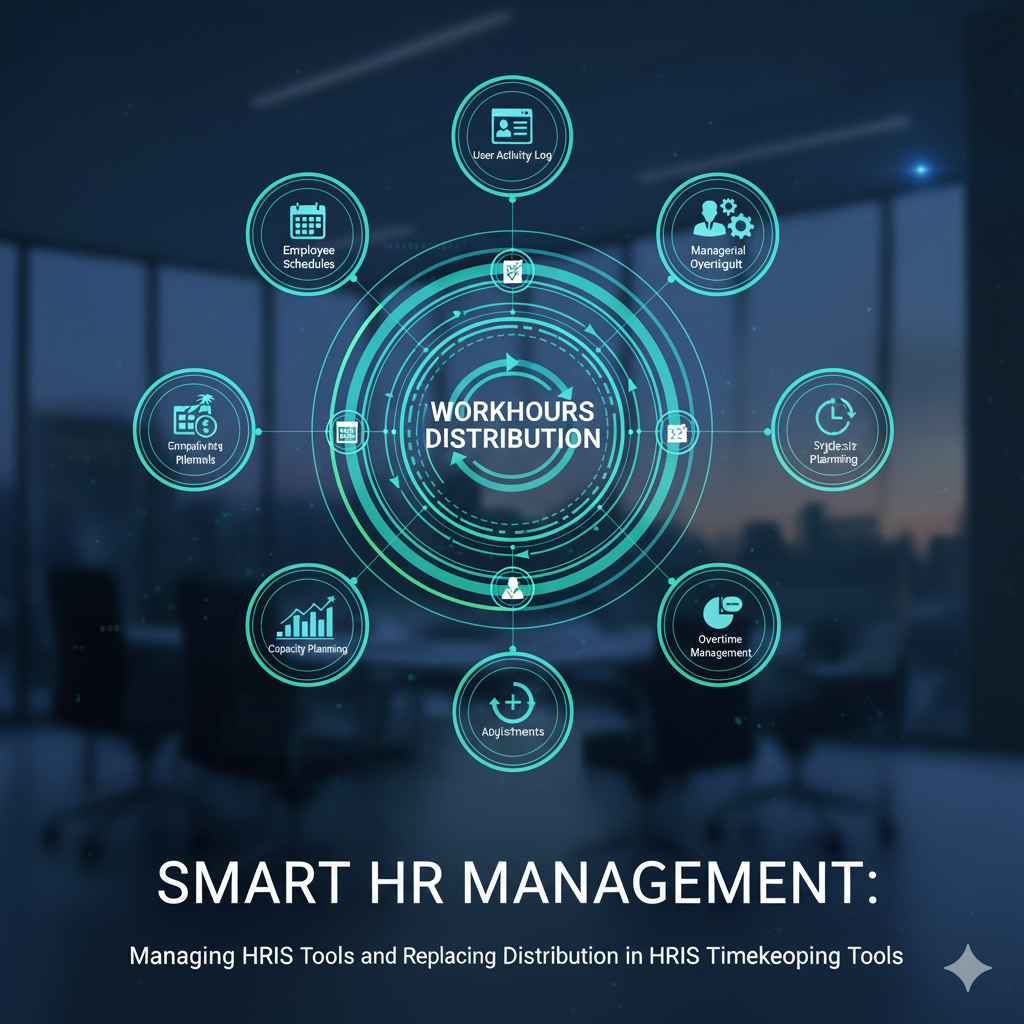Address
Kaypian, San Jose Del Monte City, Bulacan Philippines
Work Hours
Monday to Friday: 8AM - 6PM
Weekend: 10AM - 5PM
Address
Kaypian, San Jose Del Monte City, Bulacan Philippines
Work Hours
Monday to Friday: 8AM - 6PM
Weekend: 10AM - 5PM


Integrated HR. Accurate Payroll.


Integrated HR. Accurate Payroll.

In today’s dynamic workplace, managing employee schedules and workhours has become more complex than ever. With flexible shifts, hybrid work setups, and multi-branch operations, HR teams need precise tools to ensure accurate daily time computation.
This is where smart timekeeping in HRIS systems comes in — offering automation, accuracy, and flexibility in managing workhours distribution. Instead of spending hours adjusting logs manually, HR can now rely on system-driven processes that handle everything seamlessly, from shift allocation to overtime computation.
Let’s explore how HRIS timekeeping tools are transforming the way organizations manage and adjust workhour distribution.
Workhours distribution refers to how employee working hours are calculated and allocated across daily schedules — including regular hours, breaks, overtime, and rest days.
In traditional systems, any adjustment to this distribution — such as correcting a missing time-in, converting overtime, or shifting hours to another day — requires manual intervention. HRIS timekeeping tools eliminate this hassle by automating the computation and allowing authorized users to modify daily distributions accurately.
Accurate workhour distribution impacts multiple areas of HR and business operations, including:
In short, managing workhour distribution effectively means achieving fairness, accuracy, and efficiency — three pillars of smart HR management.
This flexibility ensures that attendance data reflects the real working situation without compromising data integrity.
| Benefit | Description |
| Accuracy | Eliminates manual errors in workhour computation. |
| Efficiency | Saves HR time through automation and batch updates. |
| Transparency | Provides detailed audit trails for every change. |
| Flexibility | Allows on-the-spot adjustments to time records. |
| Compliance | Aligns with company policies and labor regulations. |
In the modern HR landscape, manual time adjustments are no longer efficient or sustainable. With the help of smart HRIS timekeeping tools, organizations can now manage and modify daily workhour distributions effortlessly, ensuring payroll accuracy, compliance, and workforce transparency.
By embracing automation, HR teams gain control, flexibility, and peace of mind — allowing them to focus more on strategic goals rather than administrative corrections.
In essence, smart timekeeping isn’t just about tracking attendance — it’s about transforming the way businesses manage people, time, and productivity.